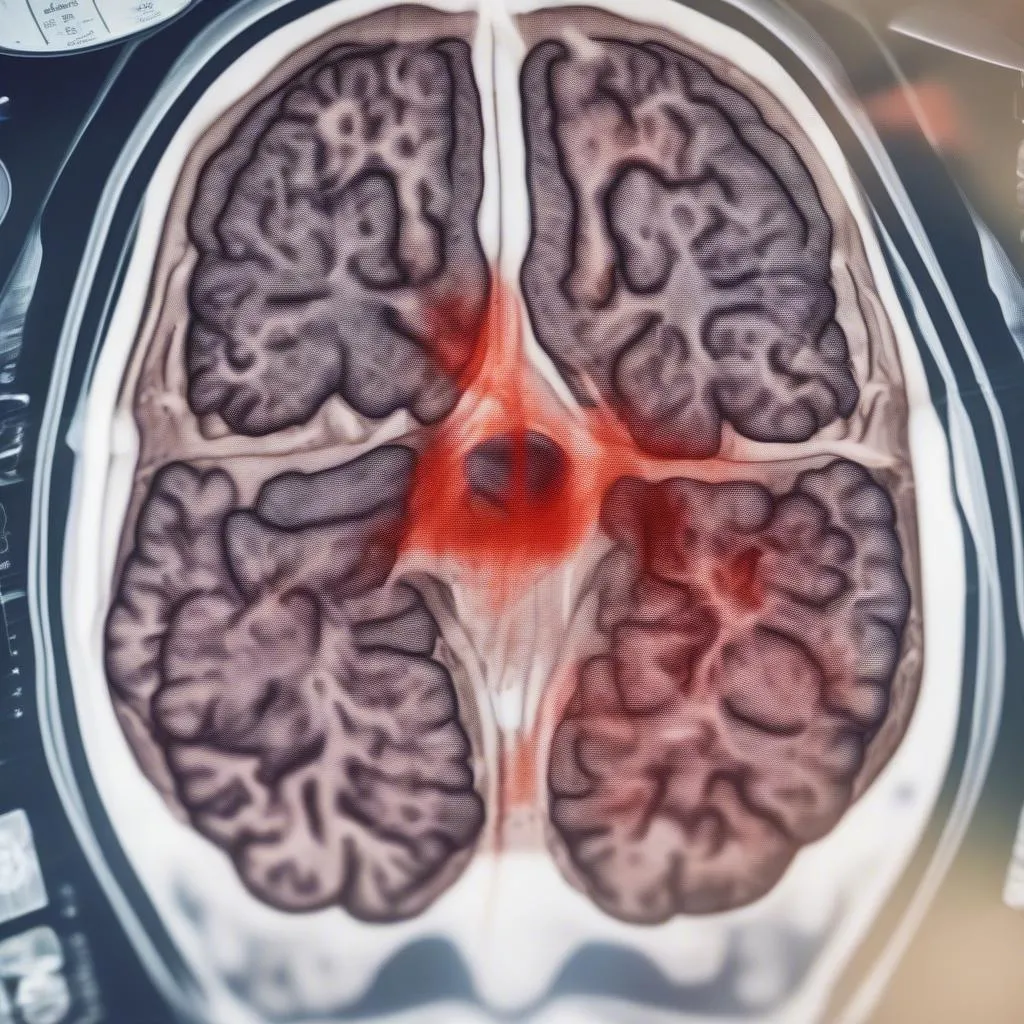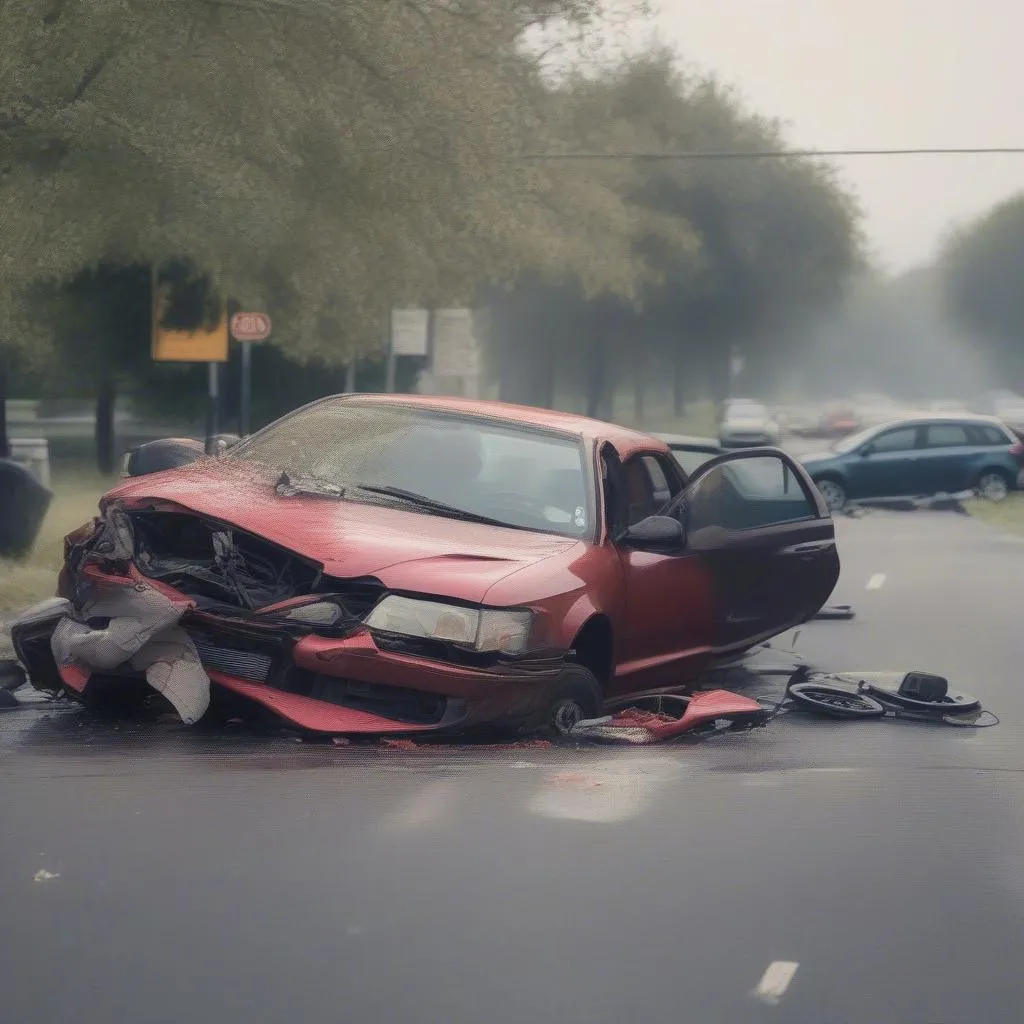Have you ever seen a movie where someone gets into a car accident and wakes up with no memory? It’s a classic plot device, but it begs the question: does memory loss after a car accident actually happen? And if so, what causes it?
As an automotive content creator specializing in car electrical systems, I’m here to delve into this intriguing topic. We’ll explore the connection between car accidents and memory loss, separating fact from fiction and providing insights into this often-misunderstood phenomenon.
Understanding “Loss of Memory” After a Car Accident
First, let’s clarify what we mean by “loss of memory.” This term can encompass a range of experiences, from temporary confusion to more serious conditions like amnesia.
-
Temporary Confusion: After a car accident, especially one involving a head injury, it’s common to experience some degree of disorientation or confusion. This is often due to the physical trauma the brain has undergone. You might forget the moments leading up to the accident, have trouble concentrating, or struggle to recall recent events.
-
Post-Traumatic Amnesia (PTA): This type of amnesia is directly linked to a traumatic brain injury (TBI). PTA can manifest in two ways:
- Anterograde Amnesia: Difficulty forming new memories after the injury.
- Retrograde Amnesia: Inability to recall events that happened before the injury.
It’s important to note that not everyone involved in a car accident will experience memory loss. The severity of the accident, the presence and extent of a head injury, and individual factors all play a role.
Car Accidents and the Brain: Connecting the Dots
To understand why memory loss can occur after a car accident, it’s crucial to understand how the brain is affected. During a collision, the rapid deceleration can cause the brain to impact the inside of the skull. This can result in:
- Concussions: A mild traumatic brain injury that disrupts brain function.
- Contusions: Bruising of the brain tissue.
- Diffuse Axonal Injury: Widespread damage to nerve fibers, often caused by forceful shaking or rotation of the head.
- Hematoma: Bleeding within the skull, which can compress the brain.
These injuries can disrupt the brain’s intricate network responsible for memory formation, storage, and retrieval, leading to the memory problems often associated with car accidents.
 Brain injury after car accident
Brain injury after car accident
What to Do if You Experience Memory Loss After an Accident
If you or someone you know has been in a car accident and experiences memory loss, seeking immediate medical attention is crucial.
Here’s why:
- Prompt Diagnosis: A medical professional can assess the situation, determine the severity of the injury, and rule out any life-threatening conditions.
- Treatment and Management: Depending on the cause and extent of the memory loss, various treatment options might be available, from medication to cognitive rehabilitation therapy.
- Legal Implications: In cases of severe memory loss, especially if it affects daily life, documenting the condition is essential for insurance claims, legal proceedings, and accessing support services.
Beyond the Physical: The Psychological Impact
The aftermath of a car accident, even a minor one, can be emotionally taxing. The shock, fear, and stress associated with the event can contribute to:
- Acute Stress Disorder (ASD): Experiencing distressing symptoms like flashbacks, anxiety, and difficulty concentrating in the immediate aftermath of a traumatic event.
- Post-Traumatic Stress Disorder (PTSD): ASD can develop into PTSD if the symptoms persist for more than a month.
- Depression: Feelings of sadness, hopelessness, and loss of interest in activities can arise after a traumatic experience.
These psychological responses, while not directly causing memory loss, can certainly exacerbate existing cognitive difficulties or make it harder to focus and remember information.
 Car accident scene
Car accident scene
FAQs: Addressing Common Concerns
1. How long does memory loss typically last after a car accident?
There’s no one-size-fits-all answer. It depends on the severity of the injury and individual factors. Mild confusion might resolve within hours or days, while more significant memory problems could linger for weeks, months, or even longer. In some cases, memory loss can be permanent.
2. Are there ways to improve memory after a car accident?
Yes, there are strategies that can help. Cognitive rehabilitation therapy, brain training exercises, maintaining a healthy lifestyle, and seeking support from therapists or support groups can aid in memory recovery.
3. If I don’t have a head injury, can I still experience memory problems after a car accident?
Yes, it’s possible. The emotional trauma and stress associated with a car accident can affect memory and concentration, even without a physical head injury.
4. Should I see a doctor even if my memory loss seems minor?
Absolutely. It’s always best to err on the side of caution. A medical professional can evaluate your symptoms, determine the cause, and provide appropriate guidance.
Seeking Expert Help is Key
Dealing with the aftermath of a car accident can be overwhelming. If you’re experiencing memory loss or any other concerning symptoms, don’t hesitate to reach out to medical professionals and seek the support you need.
Remember, knowledge is power. By understanding the potential causes and effects of memory loss after a car accident, you can make informed decisions about your health and well-being.
Need help diagnosing issues with your car’s electrical system? Contact us on Whatsapp at +84767531508 . We have auto repair experts available 24/7 to assist you.
Explore More
Interested in learning more about car safety and accident-related topics? Check out these articles:
